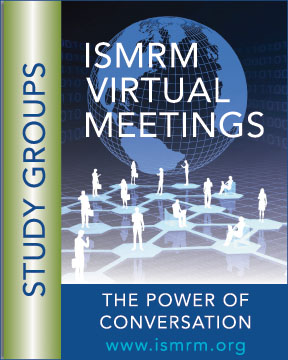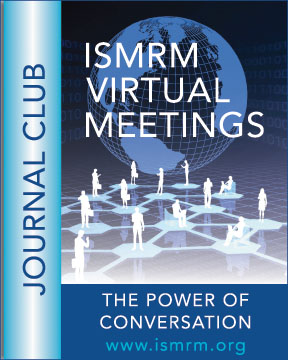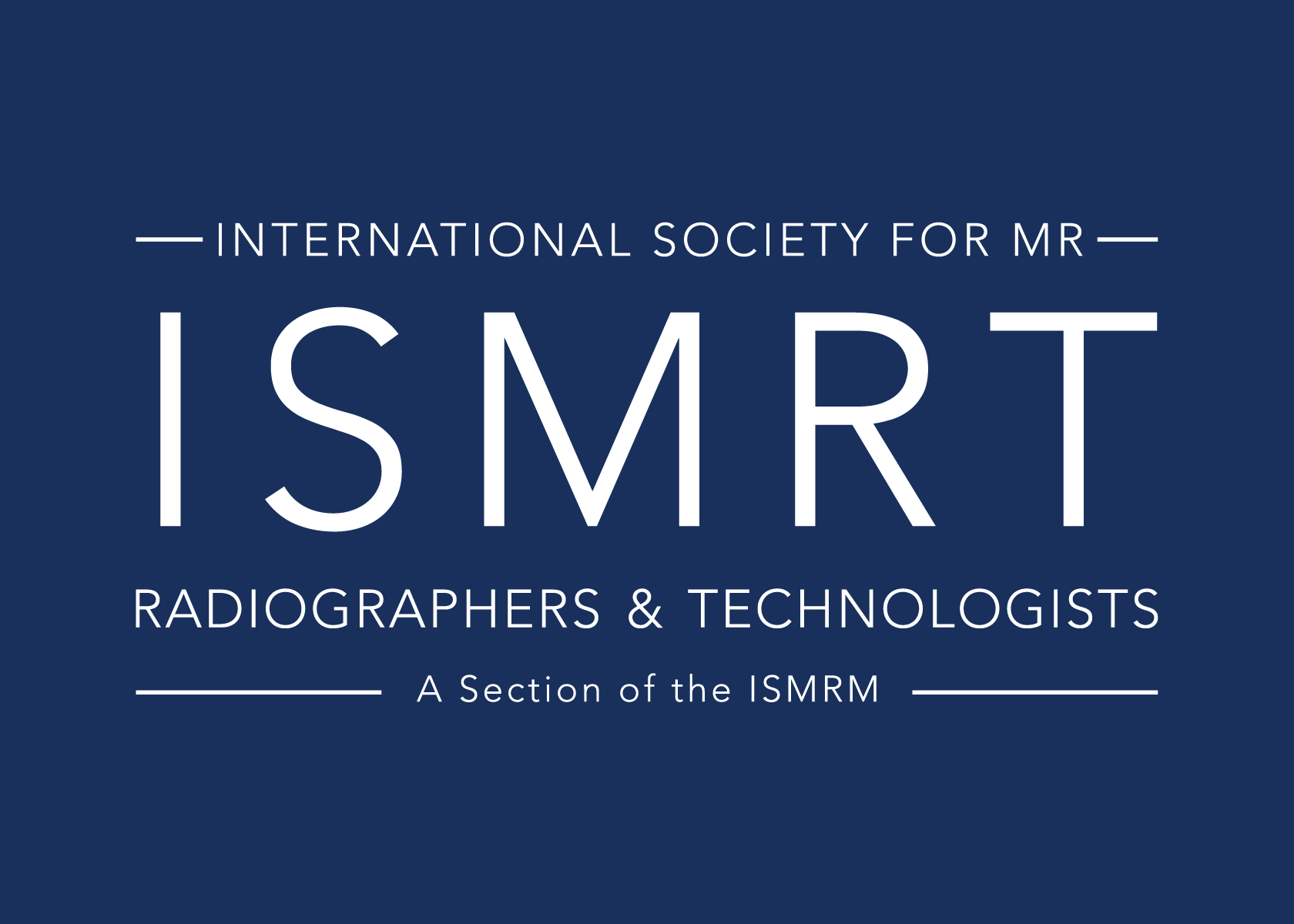🕗 Registration closes the day before a given meeting at 19:00 UTC and is limited to ISMRM & ISMRT members unless otherwise noted.
Our Next Virtual Meeting:
Joint Quantitative MRI Study Group & ISMRT Virtual Meeting
Connection, Contribution & Collaboration
Registration is FREE for members, US$25.00 for non-members.
Moderator: Liana Sanches, Ph.D., M.Sc., B.Sc.
Quantitative MRI (qMRI) techniques have been in use for some time, but recent advances in hardware and software have significantly enhanced the accuracy and power of image quantification. These innovations are making qMRI tools increasingly accessible in clinical settings. While analysis methods are essential, proper image acquisition remains crucial for accurate measurements. In this virtual meeting, the qMRI Study Group will present the current landscape of qMRI, highlighting its applications and opportunities for MRI technologists. ISMRT members who are actively involved in the qMRI Study Group will share their experiences and explain how they contribute their expertise to support qMRI protocols and research. We invite the entire MRI technologist community to join us, ask questions, and explore how you can get involved as an active ISMRT member of the qMRI Study Group.
Introduction to qMRI
Rita Nunes, Ph.D.
Instituto Superior Técnico
Lisbon, Portugal
How MRI Techs Can Engage with qMRI
Brandy Reed, M.B.A., R.T.(R)(MR)
MD Anderson Cancer Center
Houston, TX, USA
Future Virtual Meetings:
ISMRT Virtual Meeting
How To Transform Your Idea Into an Abstract
Registration is FREE for members, US$25.00 for non-members.
Moderators: Kathleen Colford, Ph.D., Patricia Mazwi Maishi, M.Sc. & Alexander Robertson, MBA, RT (MR), MRSO
Join us for an engaging ISMRT virtual meeting designed to help early-career radiographers and technologists craft successful ISMRT abstracts. This session will highlight key strategies for writing impactful submissions, common pitfalls to avoid, and tips tailored to clinical and technical research. Featuring a special presentation by this year’s ISMRT President’s Award winner, we’ll showcase their winning abstract from the 2025 Annual Meeting in Hawai‘i as a real-world example of excellence. Whether you’re preparing your first submission or aiming to refine your skills, this session offers practical guidance and reviewer insights to help your abstract stand out.
How To Write an Abstract
Kristina M. Pelkola, BSc, RT, R, MR
Boston Children's Hospital
Boston, MA, USA
Fetal Cardiac MRI Methods Used in the Prenatal Diagnosis
Sarah Smith, RT(MR)
Children's Hospital Colorado
Denver, CO, USA
Molecular & Cellular Imaging Study Group Virtual Meeting
Beyond Diagnosis: MR-Based Theranostics
Registration is FREE for members, US$50.00 for non-members.
Moderators: Cornelius Faber, Ph.D., Ulrich Flögel, Ph.D. & Iris Zhou, Ph.D.
The Molecular & Cellular Imaging Study Group invites researchers, clinicians, and students to an engaging session focused on the emerging field of MRI-based theranostics. This meeting will explore the integration of molecular imaging and therapeutic strategies using magnetic resonance imaging (MRI) as both a diagnostic and treatment-monitoring tool. Participants will gain insights into the principles of molecular and cellular MRI, including the design of targeted contrast agents, nanoparticle-based systems, and smart probes that enable real-time visualization of disease progression and therapeutic response.
Through a series of presentations and discussions, the study group will highlight recent advancements in MRI-guided drug delivery, personalized medicine, and noninvasive monitoring of cellular and molecular processes. Special emphasis will be placed on translational research bridging laboratory findings with clinical applications, covering areas such as oncology, neurodegenerative disorders, and cardiovascular disease.
This meeting provides a unique platform for interdisciplinary exchange, encouraging collaboration among molecular biologists, chemists, imaging scientists, and healthcare professionals. Attendees will have the opportunity to share their research, discuss challenges in MRI-based theranostic development, and identify future directions for innovation in this rapidly evolving field.
Magnetic Nanoparticles as Delivery Vehicles of miRNA-Targeted Therapy to Metastases
Zdravka Medarova, Ph.D.
Harvard Medical School
Boston, MA, USA
Theranostic 1H/19F MRI for Visualization & Modulation of Neutrophil Effector Functions
Pascal Bouvain, Ph.D.
Heinrich Heine University
Düsseldorf, NRW, Germany
Musculoskeletal MR Study Group Virtual Meeting
Quantitative MRI in MSK: Is It Ready for the Clinic?
Registration is FREE for members, US$50.00 for non-members.
Moderators: Rupsa Bhattacharjee, Ph.D., Karyn Chappell, Ph.D., Francesco Santini, Ph.D.
Quantitation is currently an important trend in MR research, and musculoskeletal imaging is part of this trend. With new methods being developed, and many already being tested in a research setting, we raise the question: is qMRI ready for clinical applications in musculoskeletal imaging?
In this virtual meeting, we are hosting two clinicians, Mauro Monforte, neurologist, and Daichi Hayashi, radiologist, who will talk about current trends and applications of qMRI in clinical practice, in the muscle and in the skeletal system.
qMRI in Muscle MR Imaging: Is It Ready for the Clinic?
Mauro Monforte, M.D., Ph.D.
IRCCS Fondazione Policlinico Universitario A. Gemelli
Rome, Italy
qMRI in Skeletal MR Imaging: Is It Ready for the Clinic?
Daichi Hayashi, M.D., Ph.D.
Tufts University School of Medicine
Boston, MA, USA
Placenta & Fetus Study Group Virtual Meeting
Advances in Motion Correction in Fetal & Placental MRI
Registration is FREE for members, US$50.00 for non-members.
Moderators: Esra Abaci Turk, Ph.D., Erin Englund, Ph.D., Daphna Link-Sourani, Ph.D., Inge M. van Ooijen, M.Sc.
This virtual seminar will focus on recent advances in motion correction in fetal and placental MRI. Our expert speakers will describe various motion correction strategies implemented during both acquisition and post-processing, with a focus on imaging the fetal heart, placenta, and uterus. The seminar will explore state-of-the-art techniques designed to address image artifacts caused by fetal movement and maternal respiration. Attendees can expect to gain a comprehensive understanding of current motion correction strategies for fetal-placental MRI, including the strengths, limitations, and practical applications of these methods in both clinical and research settings. A live Q&A session will follow the presentations.
Motion Correction for the Whole Uterus & Placenta
Alena Uus, Ph.D.
King’s College London
London, England, UK
Motion Compensation Strategies for Fetal Cardiac MRI
Christopher W. Roy, Ph.D.
Centre Hospitalier Universitaire Vaudois
Lausanne, Switzerland
MR Contrast Agent Study Group Virtual Meeting
The Expanding Role of Ferumoxytol in Patient Care & Research
Registration is FREE for members, US$50.00 for non-members.
Moderators: J. Paul Finn, M.D. & Giles Roditi, MBChB, FRCR, FRCP
The ISMRM MR Contrast Agents Study Group will host its inaugural webinar focused on ferumoxytol-enhanced MRI. The program will review recent technical and clinical developments and highlight applications where ferumoxytol is already impacting diagnostic imaging and areas where it may soon broaden clinical utility. Safety and dosing will be covered with practical guidance, including workflow tips for screening, infusion, and post-scan monitoring. Clinical and research applications will be showcased, with emphasis on cardiovascular imaging and examples. The session concludes with an extended Q&A and panel discussion on real-world implementation, protocol optimization, and risk mitigation. The webinar targets radiologists, cardiologists, physicists, technologists, and trainees.
Overview of Ferumoxytol-Enhanced MRI
Kim-Lien Nguyen, M.D.
University of California, Los Angeles
Los Angeles, CA, USA
Safety & Basic Properties of Ferumoxytol
Shreyas Vasanawala, M.D., Ph.D.
Stanford University
Stanford, CA, USA
Angiographic Applications
Jeremy Collins, M.D.
Mayo Clinic
Rochester, MN, USA
Ferumoxytol-Enhanced Imaging at Low-field
Orlando Simonetti, Ph.D.
The Ohio State University
Columbus, OH, USA
Joint ISMRM AMPC & Reproducible Research Study Group Virtual Meeting
ISMRM Abstract Writing Webinar Series: How To Write a Registered Abstract
Registration is FREE
Moderators: Andrea Dell'Orso, M.Sc., Lars Kasper, Ph.D. & Tony Stoecker, Ph.D.
This webinar series will provide a guide to writing strong ISMRM Registered Abstracts with an emphasis on key success elements, common pitfalls, and practical examples relevant for all researchers. This abstract category was introduced for the first time for the 2024 annual meeting. In this session, we will hear specific suggestions on preparing these Registered Abstracts based on feedback from our first year.
How To Write a Registered Abstract
Sophie Schauman, Ph.D.
Karolinska Institutet
Stockholm, Sweden
What To Expect When Your Registered Abstract Is Accepted
Kathryn Keenan, Ph.D.
NIST
Boulder, CO, USA
Flow & Motion Quantitation Study Group Virtual Meeting
Not Your Usual 4D Flow Techniques
Registration is FREE for members, US$50.00 for non-members.
Moderators: Michael Loecher, Ph.D., Eric Schrauben, Ph.D. & Pim van Ooij, Ph.D.
This one-hour virtual session is hosted by the Flow & Motion Quantitation Study Group. It will spotlight two innovative 4D flow MRI approaches. Haben Berhane will present a deep learning-based technique that combines anatomical models with fluid dynamics to derive 3D aortic hemodynamics using a large 4D flow clinical database. Charles McGrath, Ph.D., will present a novel method for referenceless 4D flow MRI using radial bSSFP at 0.6T, demonstrating the potential of low-field imaging without the need for traditional phase correction. Both presentations challenge the norms of acquisition and analysis, promising discussions on the techniques, accuracy, accessibility, and clinical integration. Whether you are research-focused or clinically oriented, this is not your usual 4D flow meeting.
Anatomy-Derived 3D Aortic Hemodynamics Using Fluid Physics-Informed Deep Learning
Haben Berhane, B.Sc.
Northwestern University
Evanston, IL, USA
Referenceless 4D Flow MRI Using Radial Balanced SSFP at 0.6T
Charles McGrath, Ph.D.
Stanford University
Stanford, CA, USA
Joint EMTP & MR Safety Study Group Virtual Meeting
Safety & EMTP at a Crossroads: Are We Ready for Subject-Specific SAR Assessments?
Registration is FREE for members, US$50.00 for non-members.
Moderators: Stefano Mandija, Ph.D. & Luca Zilberti, Ph.D.
During MRI, RF-induced thermal stress of tissues is managed by limiting the specific absorption rate (SAR), which is used as a surrogate for temperature increase. In principle, both global and local values of SAR can be restricted. Global SAR is easier to assess, for example, taking the ratio between the measured absorbed power and the patient mass, but it provides average information only. In contrast, local SAR is much more difficult to estimate, but it has the potential to “personalize” safety, possibly allowing to widen the safety margins and exploiting the full power of MRI. The spatial distribution of local SAR is influenced by several factors, including body size, posture, and position within the scanner. In addition, a truly subject-specific SAR assessment would require knowledge about the heterogeneity of tissues, with their dielectric properties.
The virtual meeting aims to provide an up-to-date overview of the available scientific evidence about the variability of subject-specific SAR and possible solutions to assess it. Special attention will be paid to electric properties tomography (EPT), which estimates the patient’s dielectric properties from complex B1 maps and can provide an estimation of electric field maps to enable an estimation of subject-specific local SAR. To provide a comprehensive picture and explore the benefits of subject-specific SAR, the discussion will be supplemented with a presentation on the relationship between SAR limits and thermal thresholds.
Variability of Subject-Specific Local SAR Up to 3T
Oriano Bottauscio, M.Sc.
Istituto Nazionale di Ricerca Metrologica
Torino, Italy
Variability of Subject-Specific SAR at 7T & Beyond
Ettore Flavio Meliadò, Ph.D.
University Medical Center Utrecht
Utrecht, The Netherlands
Subject-Specific Local SAR via Electric Properties Tomography
Ulrich Katscher, Ph.D.
Philips Innovative Technologies
Hamburg, Germany
Thresholds for Thermal Damage
Gerard van Rhoon, Ph.D.
Erasmus MC Cancer Institute
Rotterdam, The Netherlands
Cardiac MR Study Group Virtual Meeting
Navigating Clinical & Research Cardiac MRI: Get the Big Picture
Registration is FREE for members, US$50.00 for non-members.
Moderators: Lexiaozi Fan, Ph.D. & Felicia Seemann, Ph.D.
Do you feel you lack the big-picture insight into the different cardiac MRI methods and how they are applied clinically?
Join this trainee-initiated webinar (open to everyone) designed to unravel the complexities of clinical cardiac MRI and bridge the gap between research innovations and clinical applications. The session will provide an overview of the different types of cardiac MRI images used in clinical practice, outlining what parameters and qualitative assessments are derived from each modality, the specific clinical questions these assessments address, and how their answers can directly influence a patient’s future care and management decisions. We will also highlight the current weaknesses and limitations of these techniques and discuss what the research community could do to overcome them. In addition, we will explore emerging and innovative methods in cardiac MRI research and how they could address unmet clinical needs, improve diagnostic accuracy, and open new avenues for treatment planning. This is an excellent opportunity to gain both breadth and depth of insight into the role of cardiac MRI in cardiovascular medicine.
Connecting Cardiac MRI to Its Clinical Applications
Vivek Muthurangu, M.D.
University College London
London, England, UK
Transformative Trends in Cardiac MRI: Bridging Current & Future Innovations
Juliet Varghese, Ph.D.
Ohio State University
Columbus, OH, USA
Check back frequently for more details and meeting announcements.
Looking for past Virtual Meetings?
Curious what topics have been covered before?
Go to the Virtual Meeting Archive
🕑 A NOTE ABOUT TIME 🕖
All times on this page are shown first in UTC, followed by your local time zone. This conversion is done in-browser; no location information is sent to ISMRM. If the local times are inaccurate, check your device's time zone settings:
If the you see "Invalid date" messages, your browser may be blocking the javascript used to make the time conversion. Please either turn off your script blocker or whitelist ismrm.org.
The ISMRM is accredited by the Accreditation Council for Continuing Medical Education (ACCME) to provide continuing medical education for physicians.
The International Society for MR Radiographers & Technologists (ISMRT), A Section of the ISMRM, is recognized by the American Registry of Radiologic Technologists (ARRT) as a Recognized Continuing Education Evaluation Mechanism (RCEEM).
The ISMRM is committed to providing opportunities for its members to connect, engage and develop. As an ISMRM member, you have access to:
 Study Group Virtual Meetings:
Study Group Virtual Meetings:
A platform for our 34 study groups, established to foster interaction among members with a common interest in topical and active areas of MR. Topics for discussion come from the study groups with discussion and debate promoted by expert moderators, with contributions from the virtual audience. Registration is open to all ISMRM & ISMRT members, with priority given to members of the respective Study Group.
Journal Club Virtual Meetings:
 A platform for a dynamic, international, cross-cutting journal club moderated by experts in the field. The papers for discussion come from the Society’s two journals with live access to the authors. Discussion and debate are promoted by expert moderators, with contributions from the virtual audience. Registration is open to all ISMRM & ISMRT members.
A platform for a dynamic, international, cross-cutting journal club moderated by experts in the field. The papers for discussion come from the Society’s two journals with live access to the authors. Discussion and debate are promoted by expert moderators, with contributions from the virtual audience. Registration is open to all ISMRM & ISMRT members.

